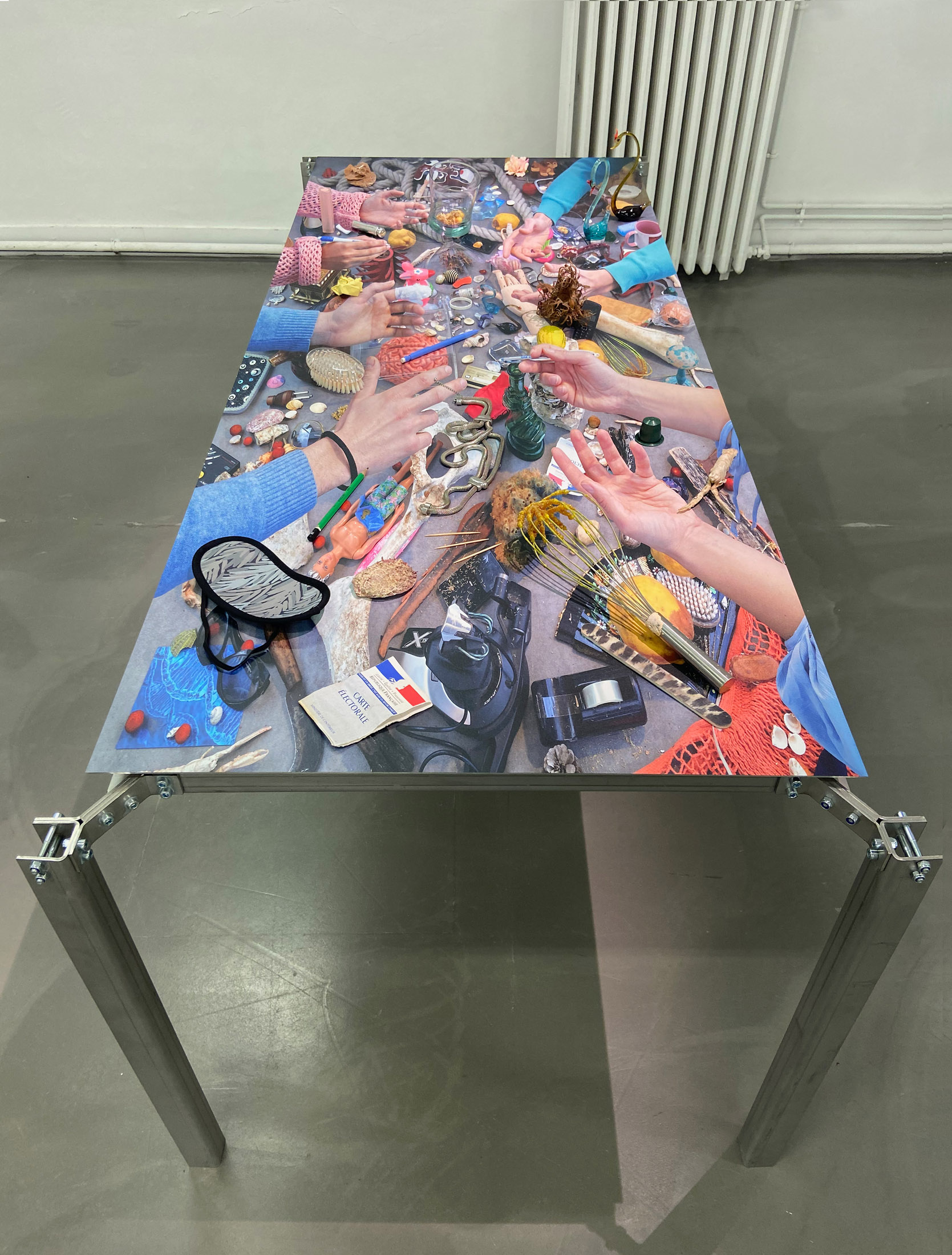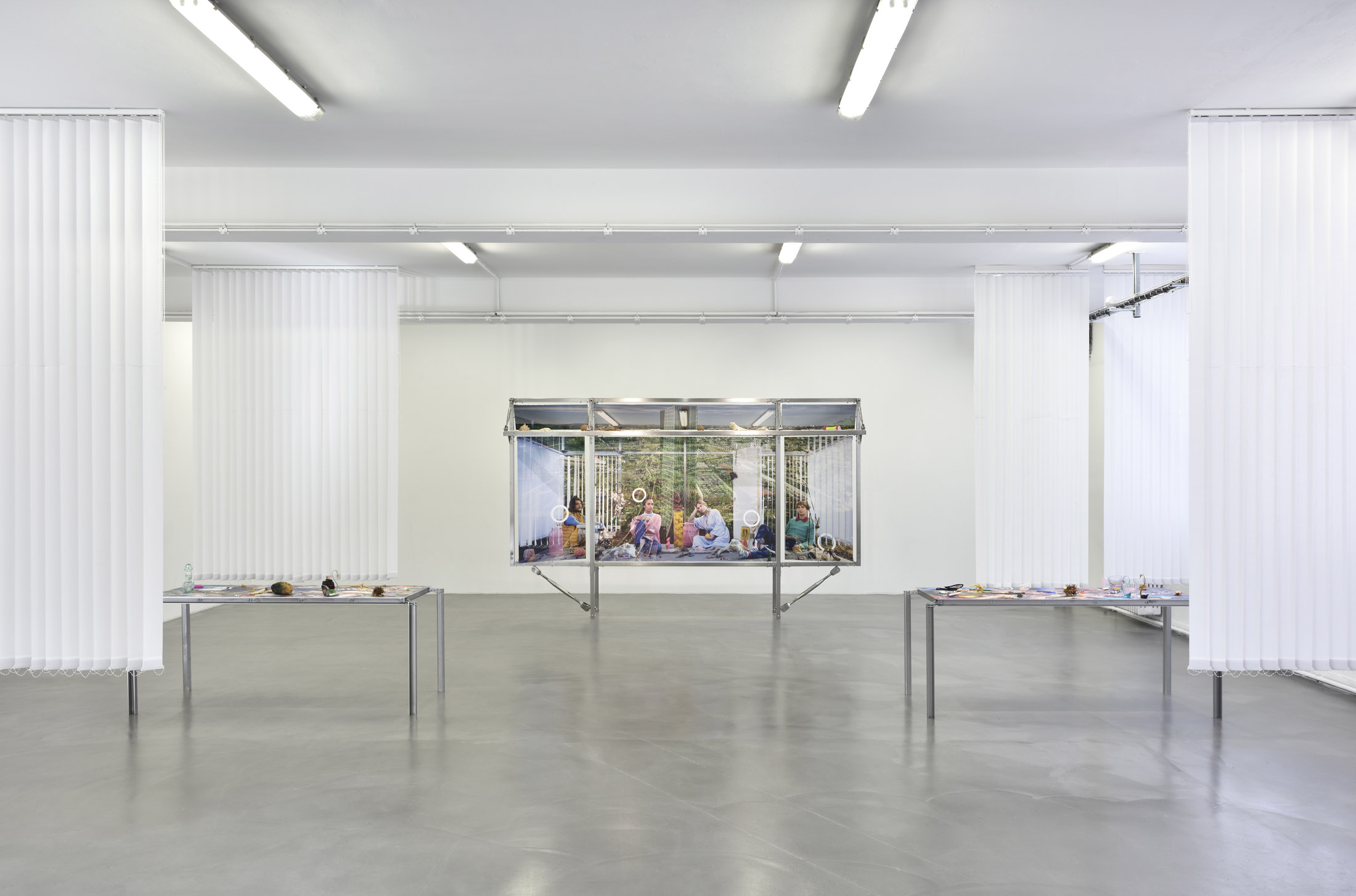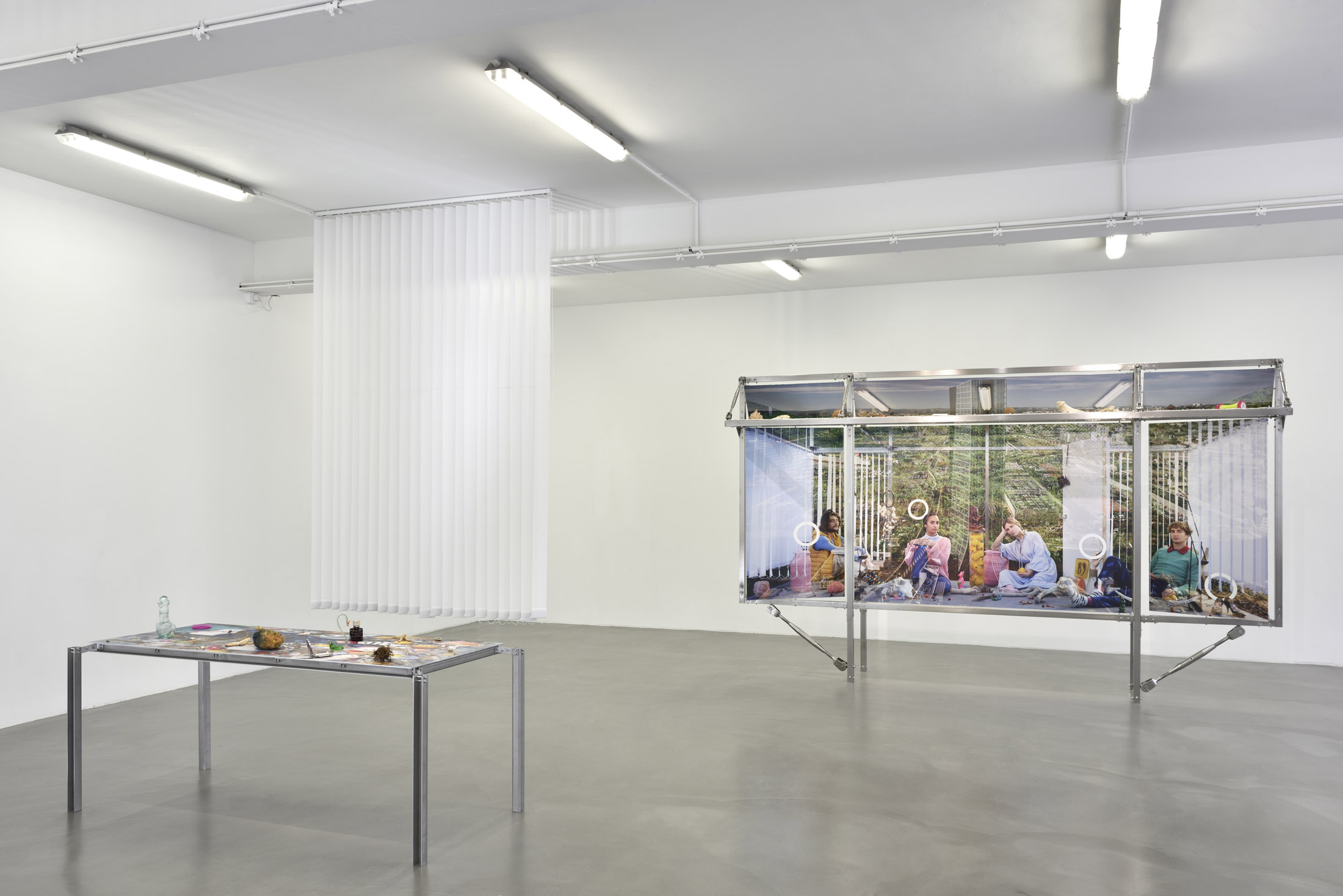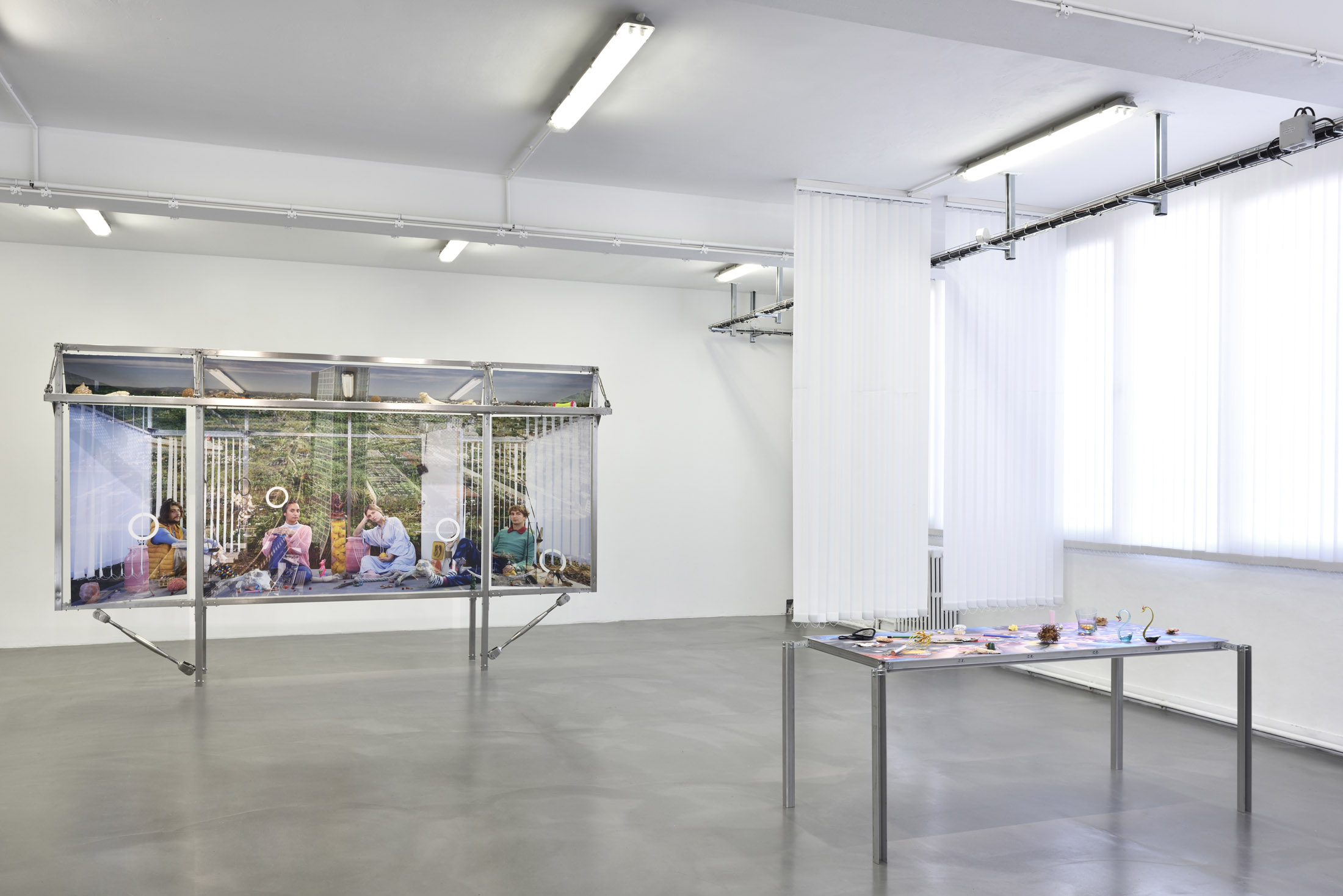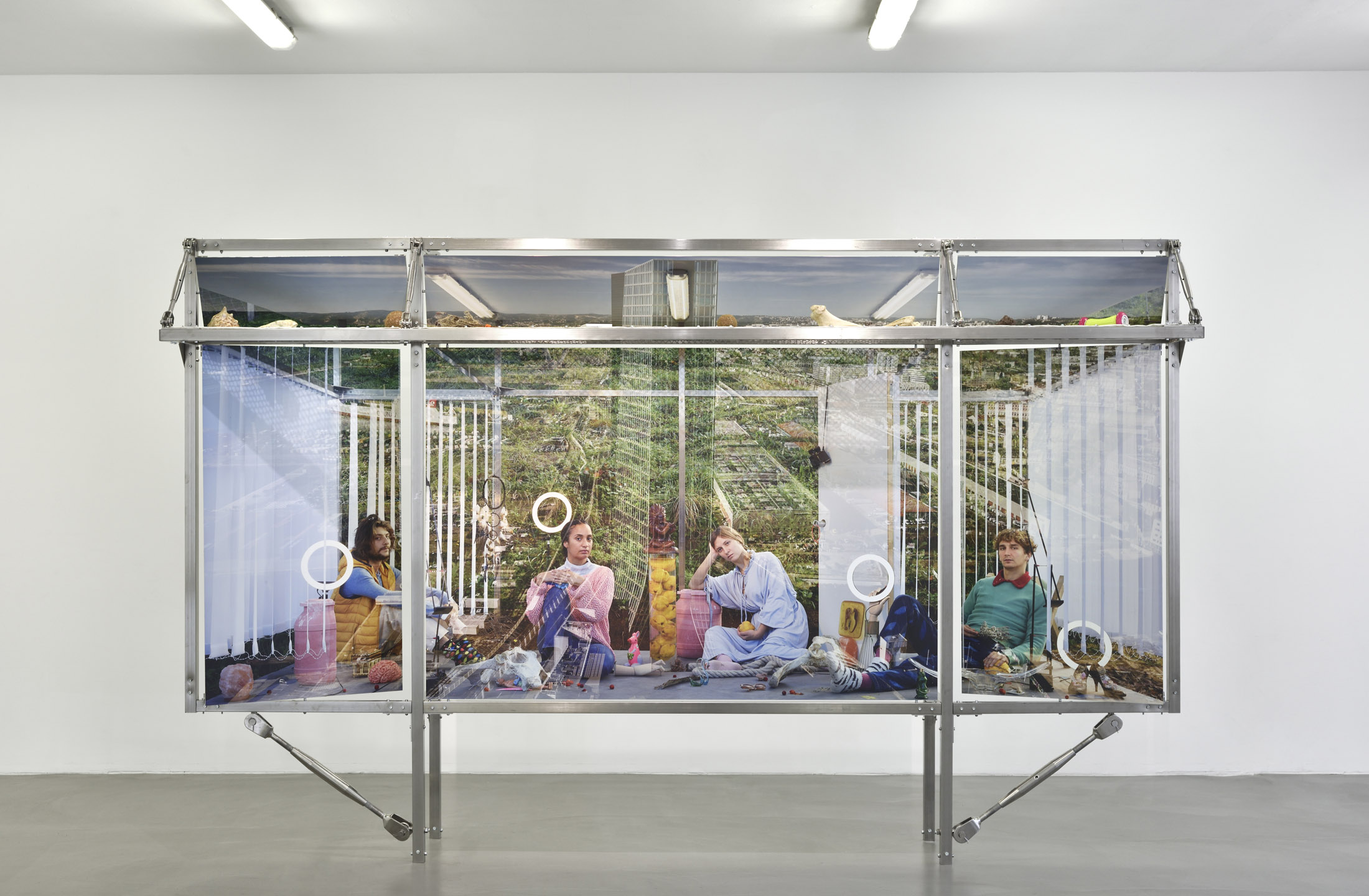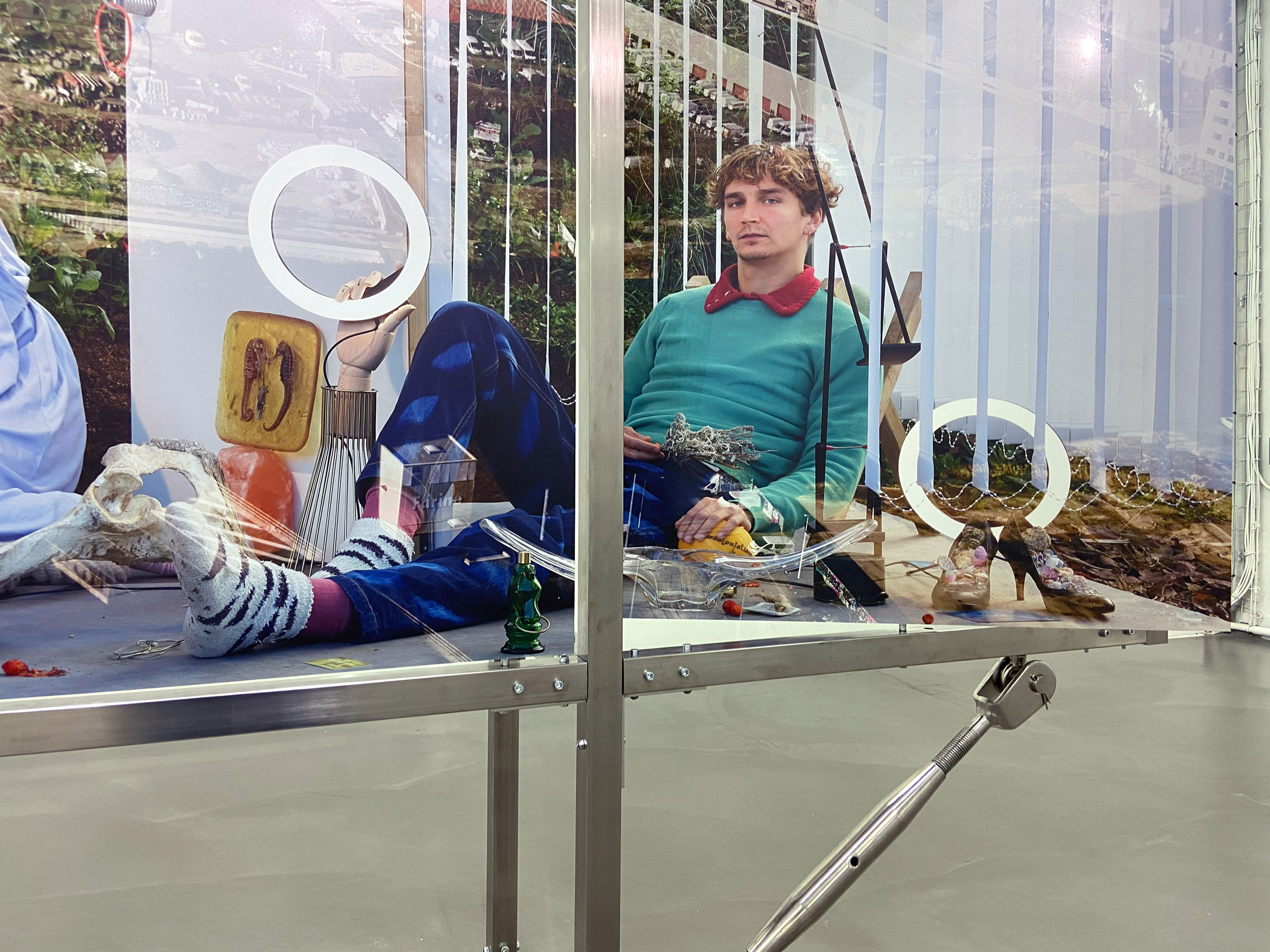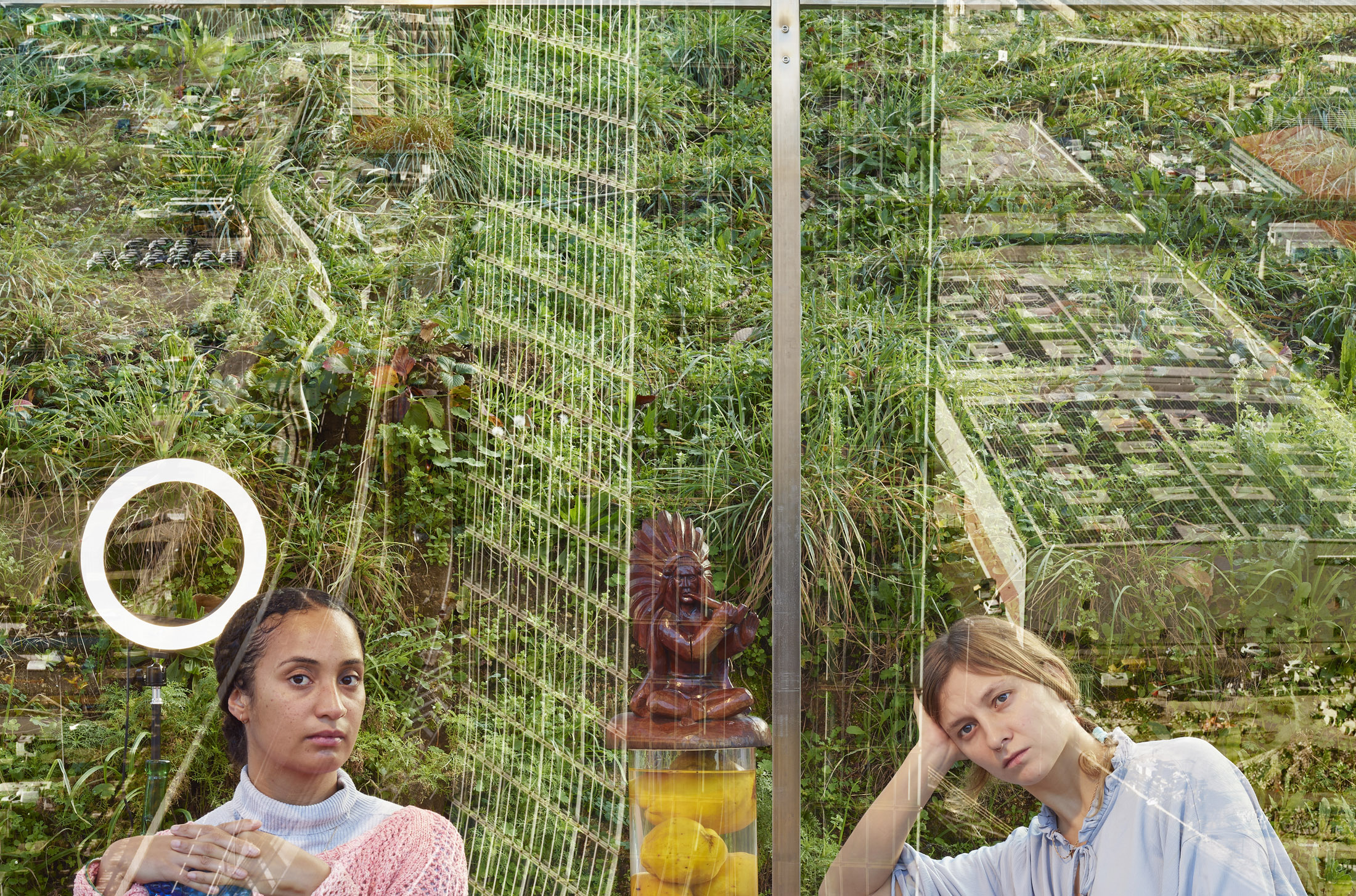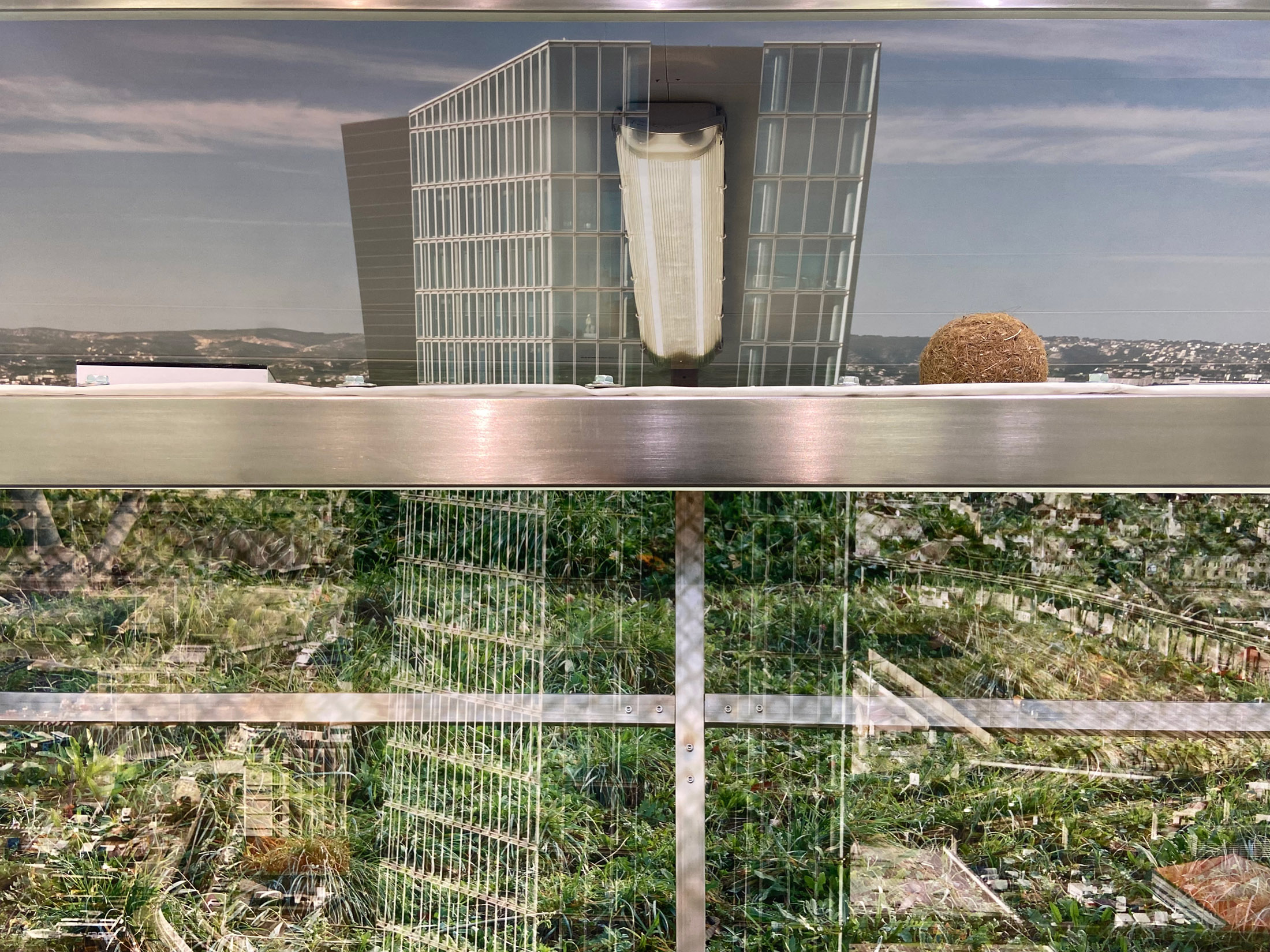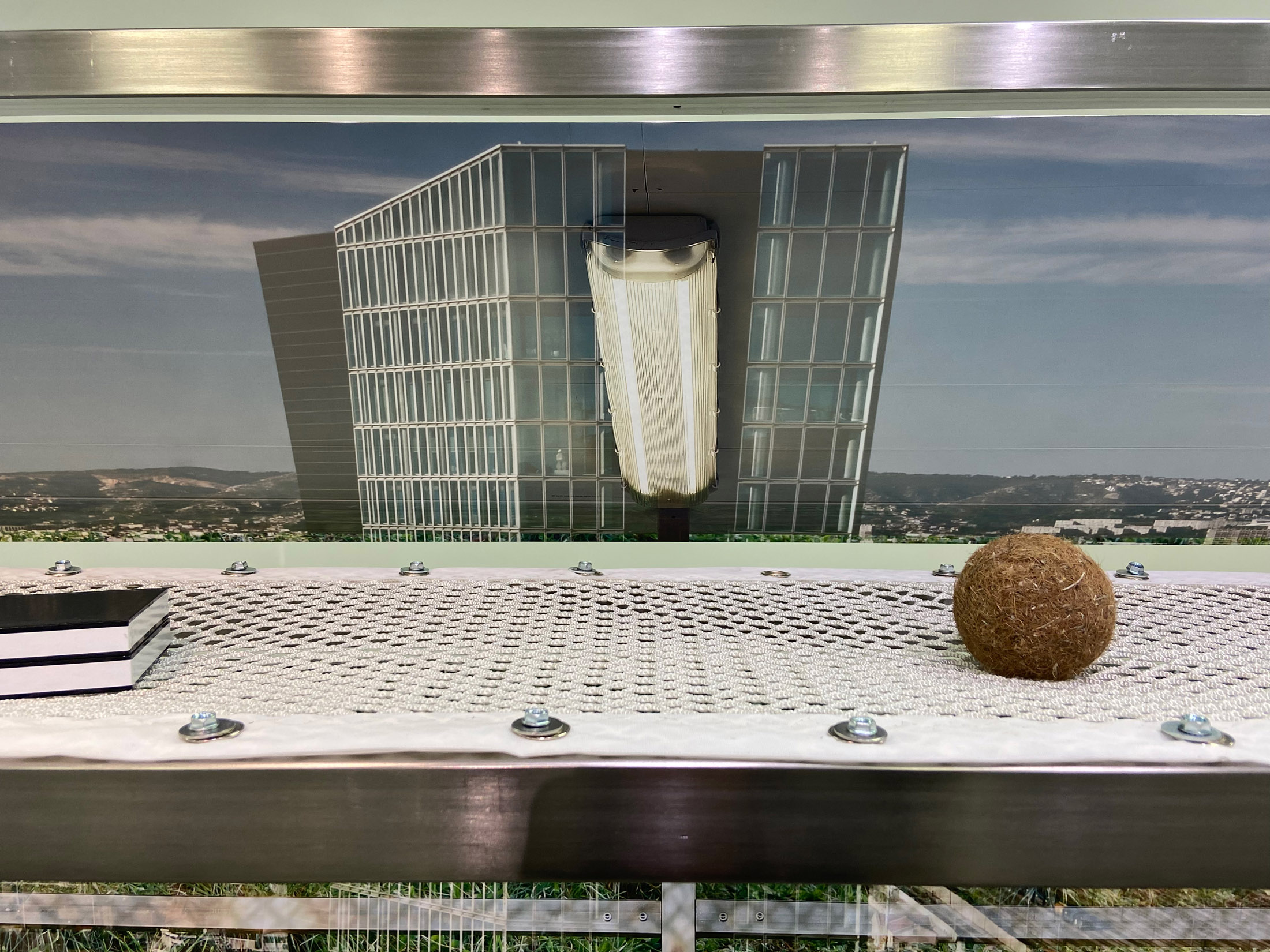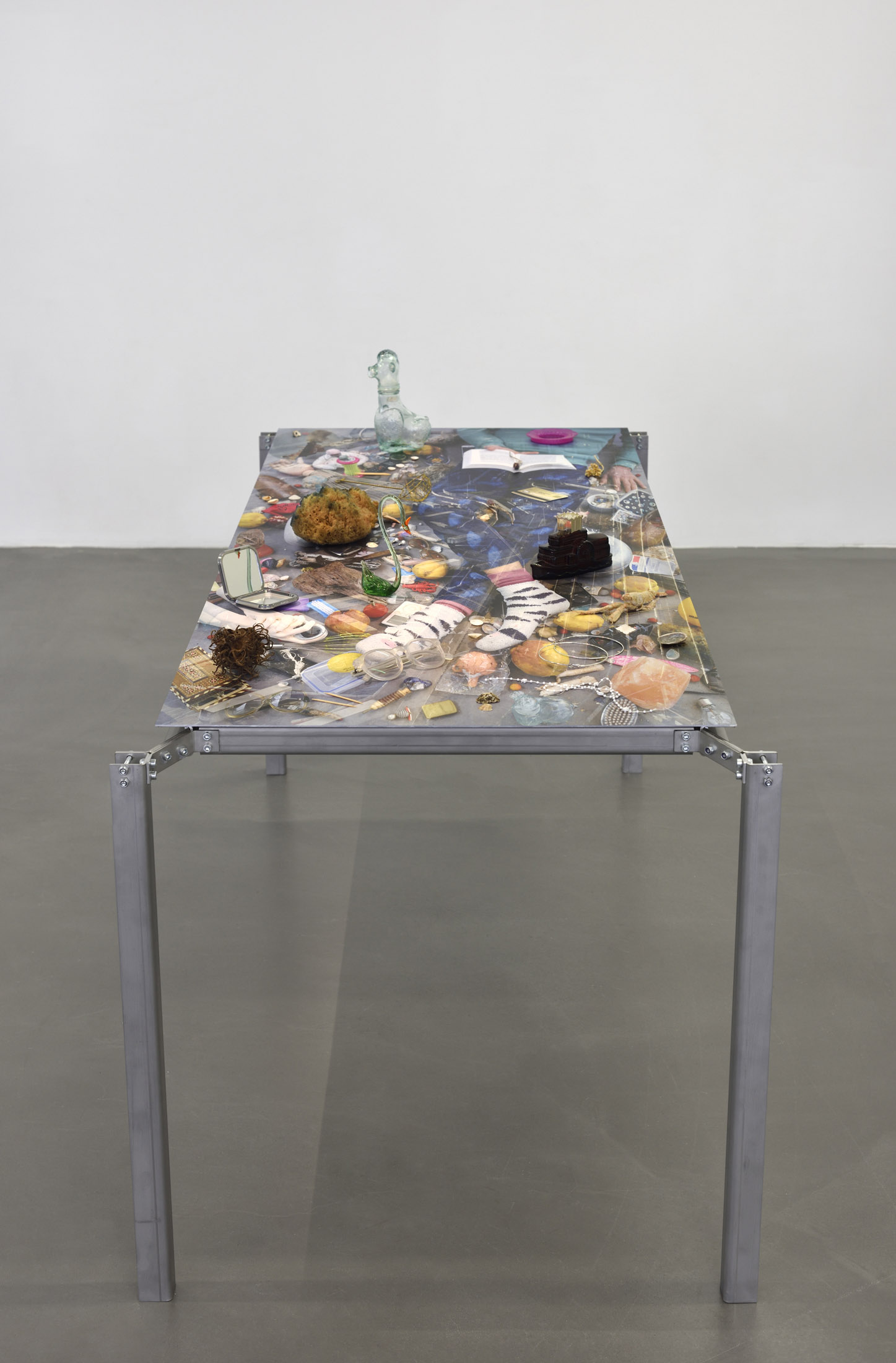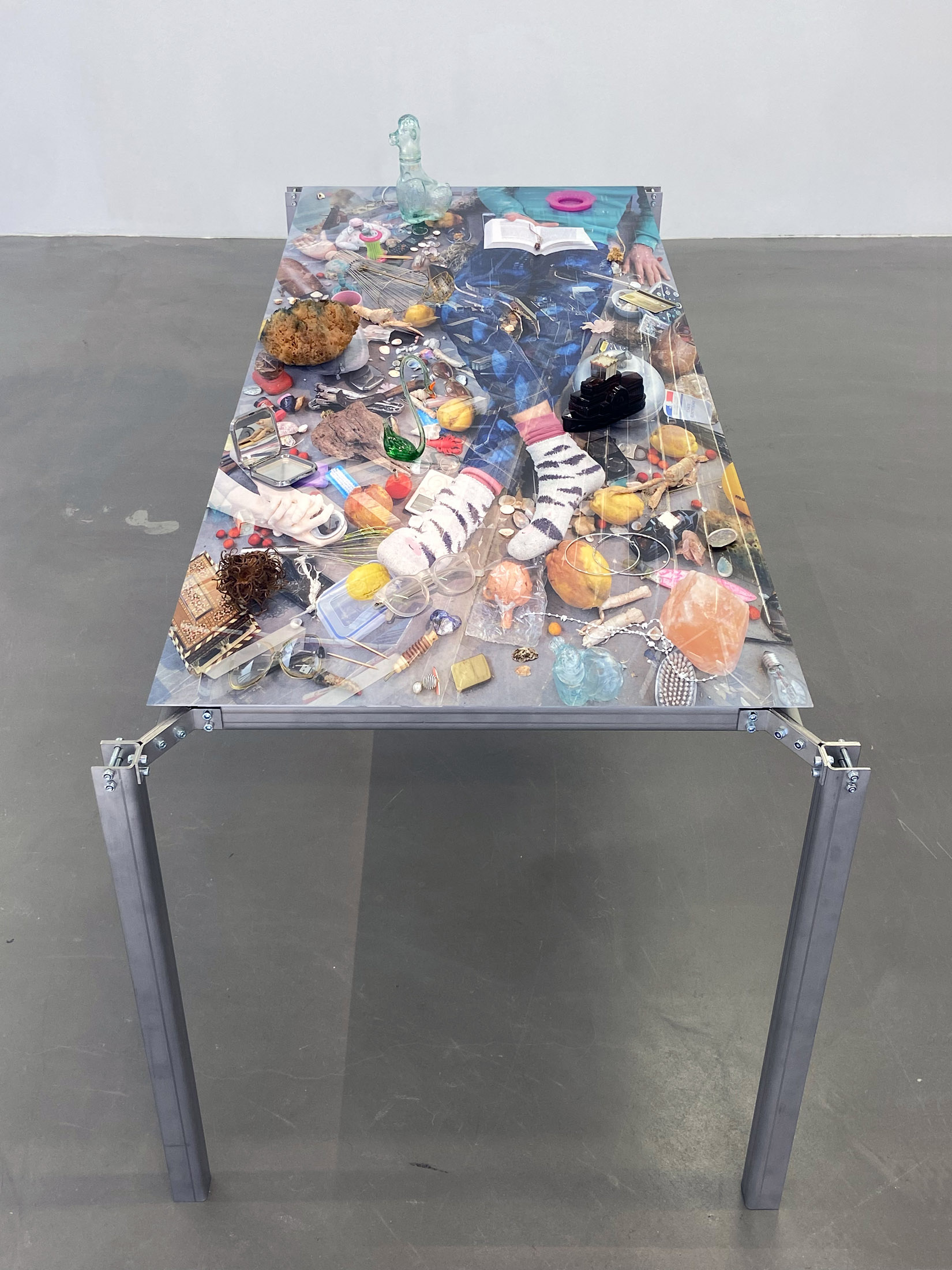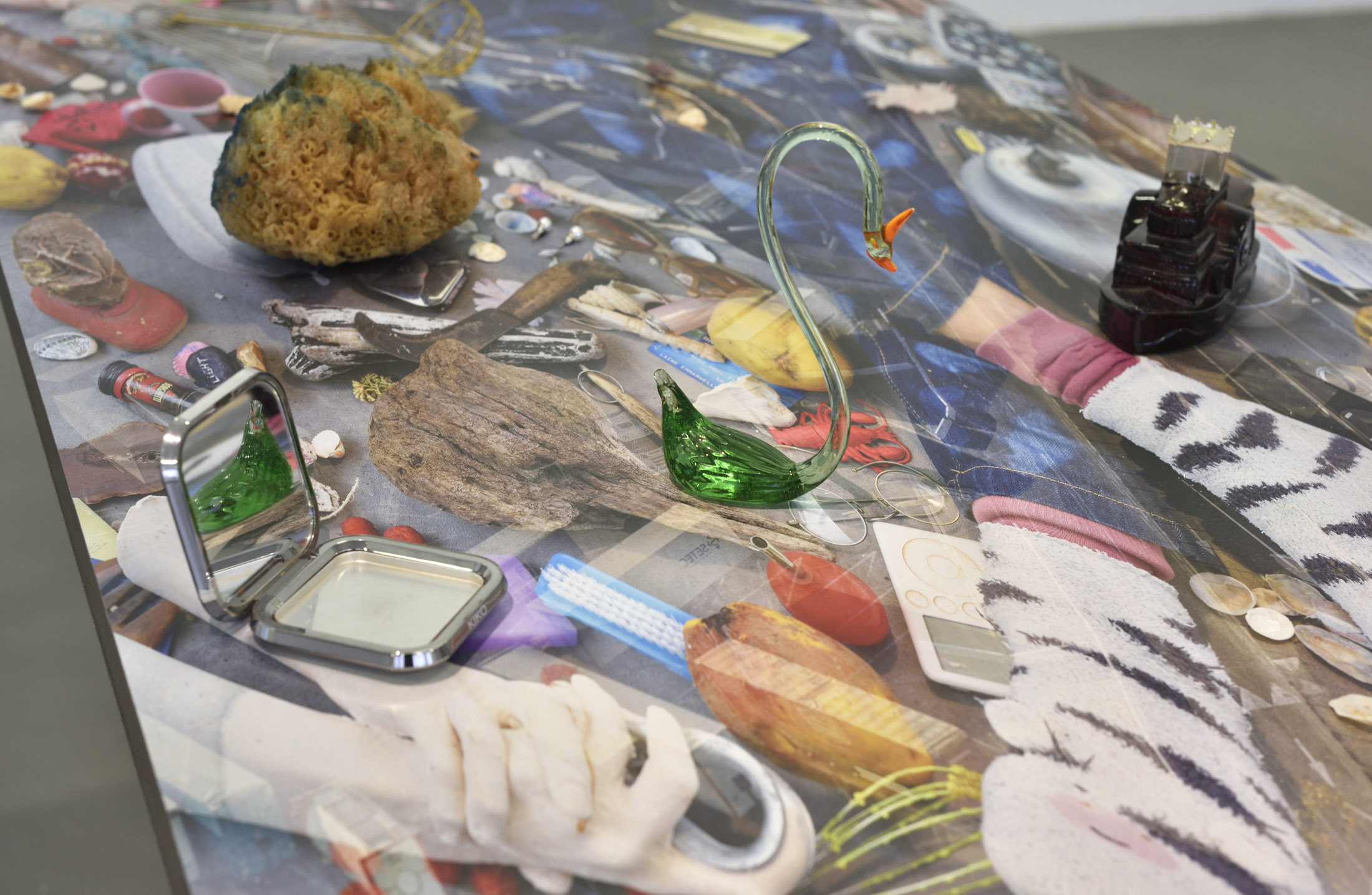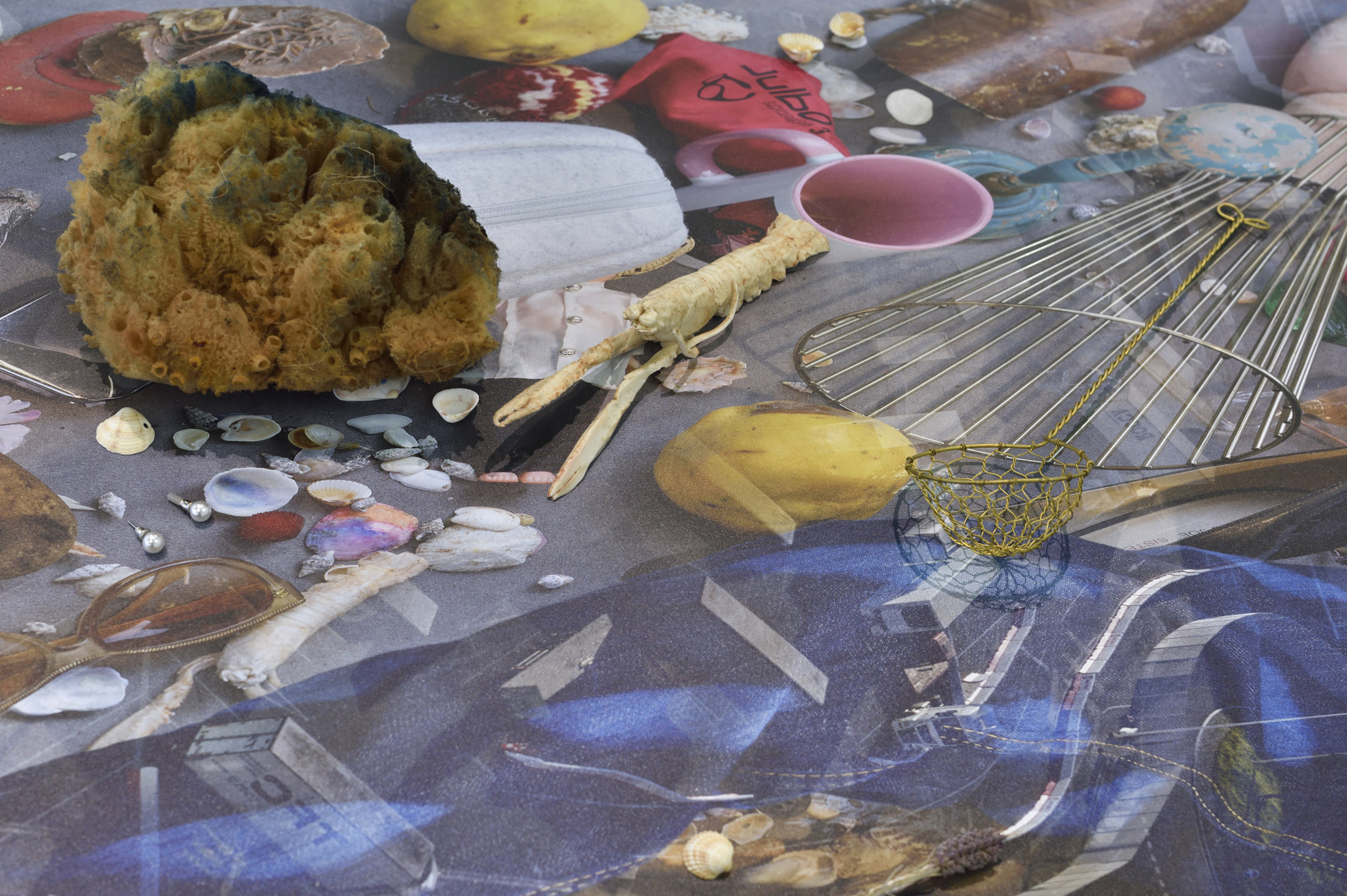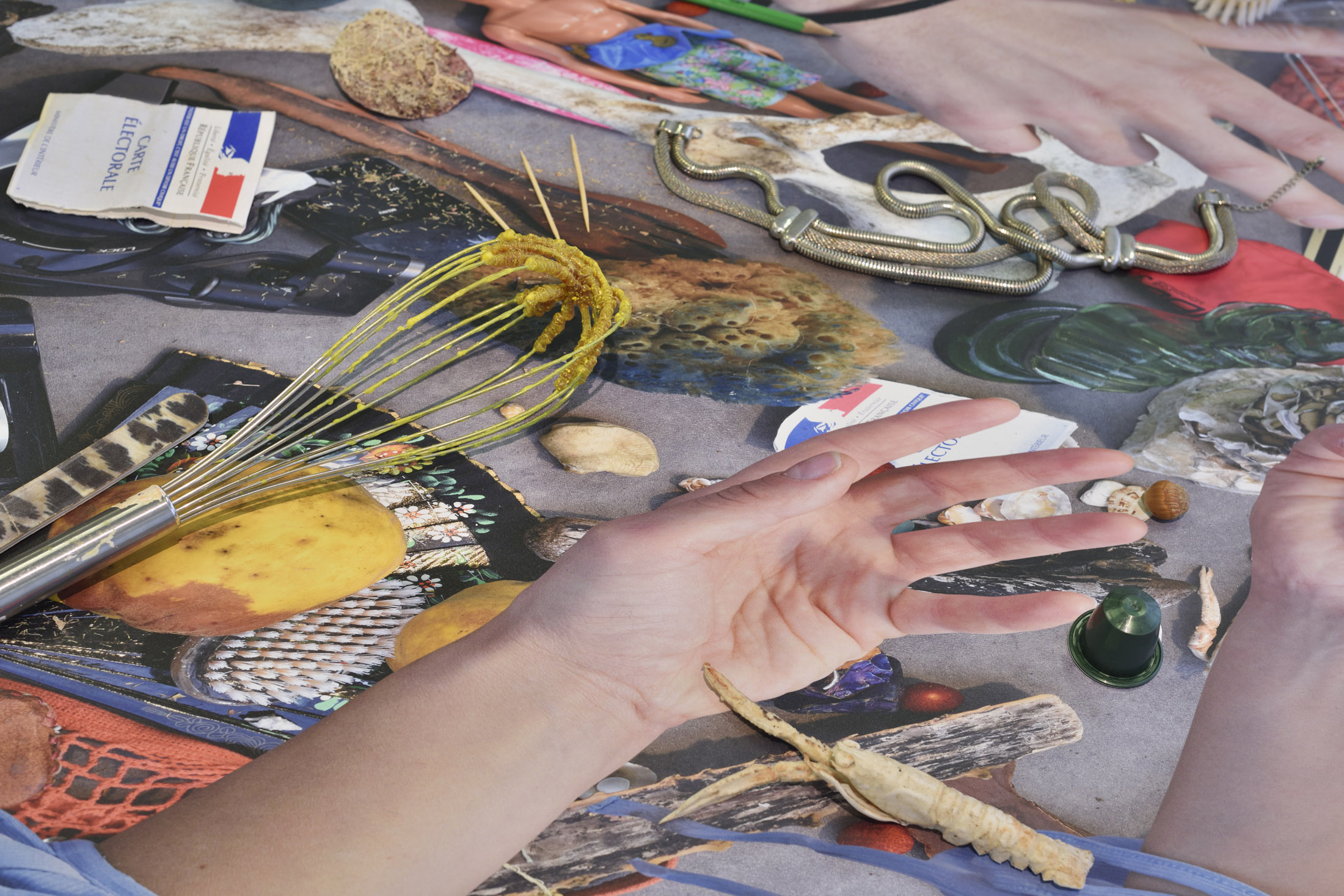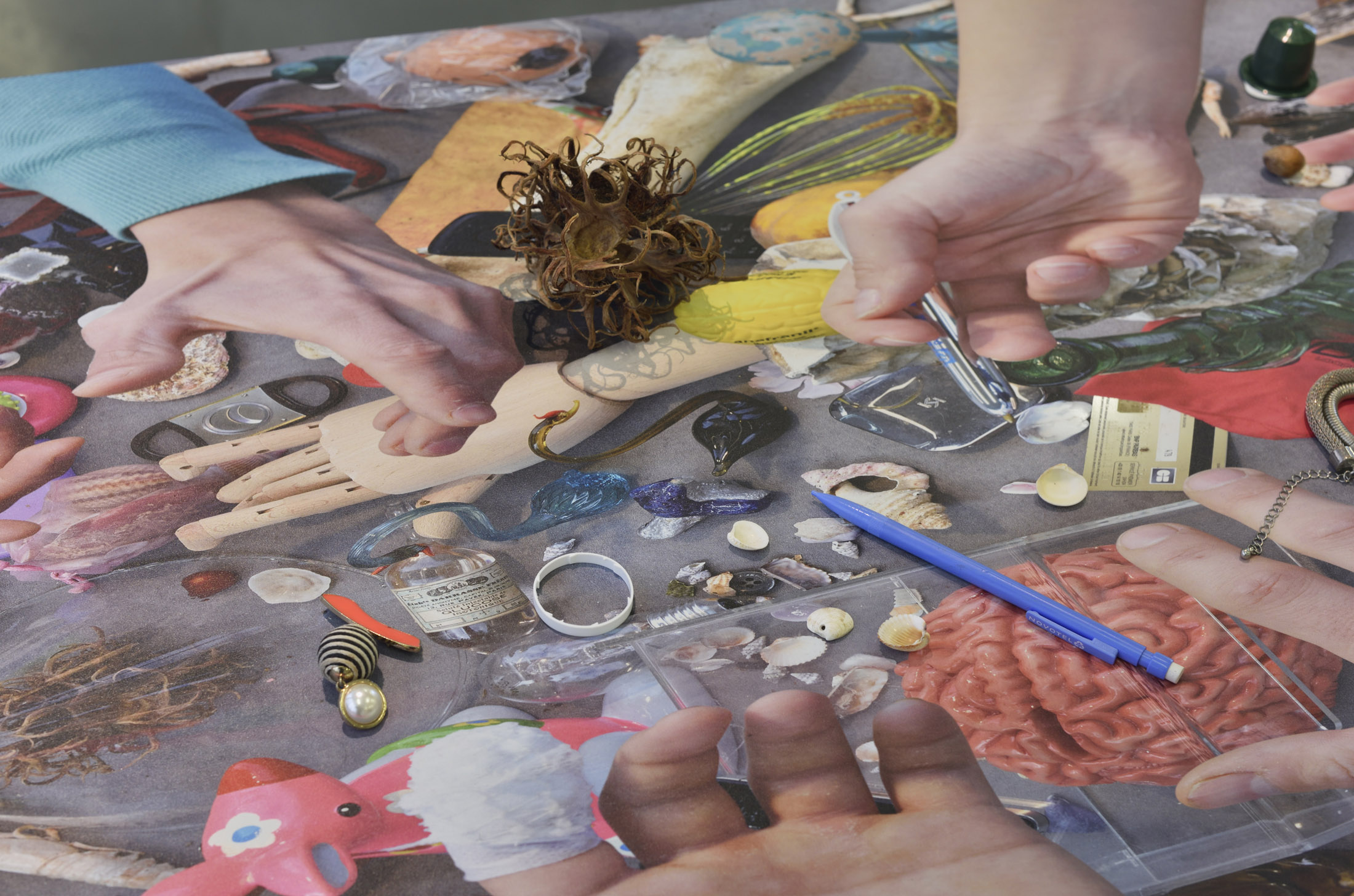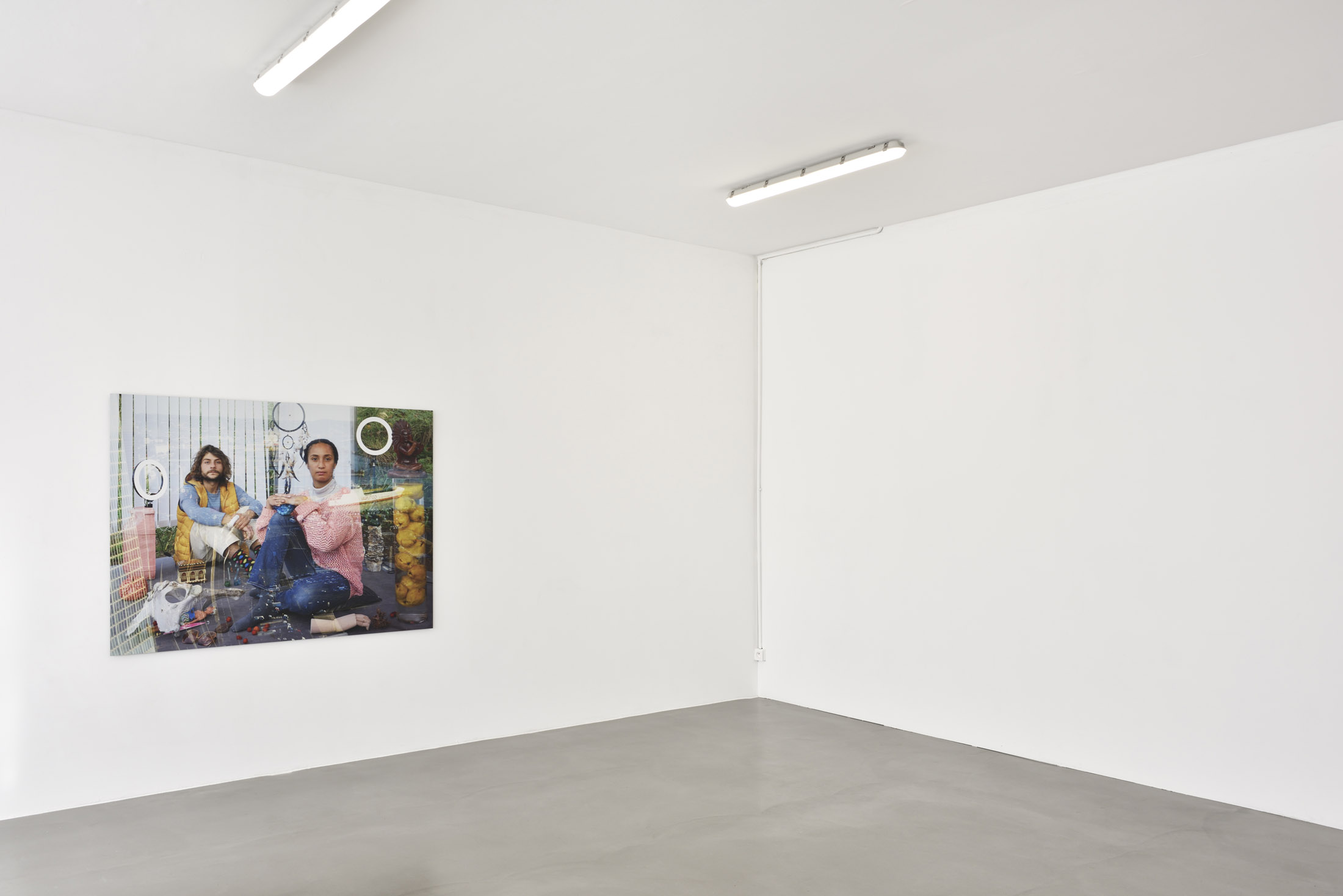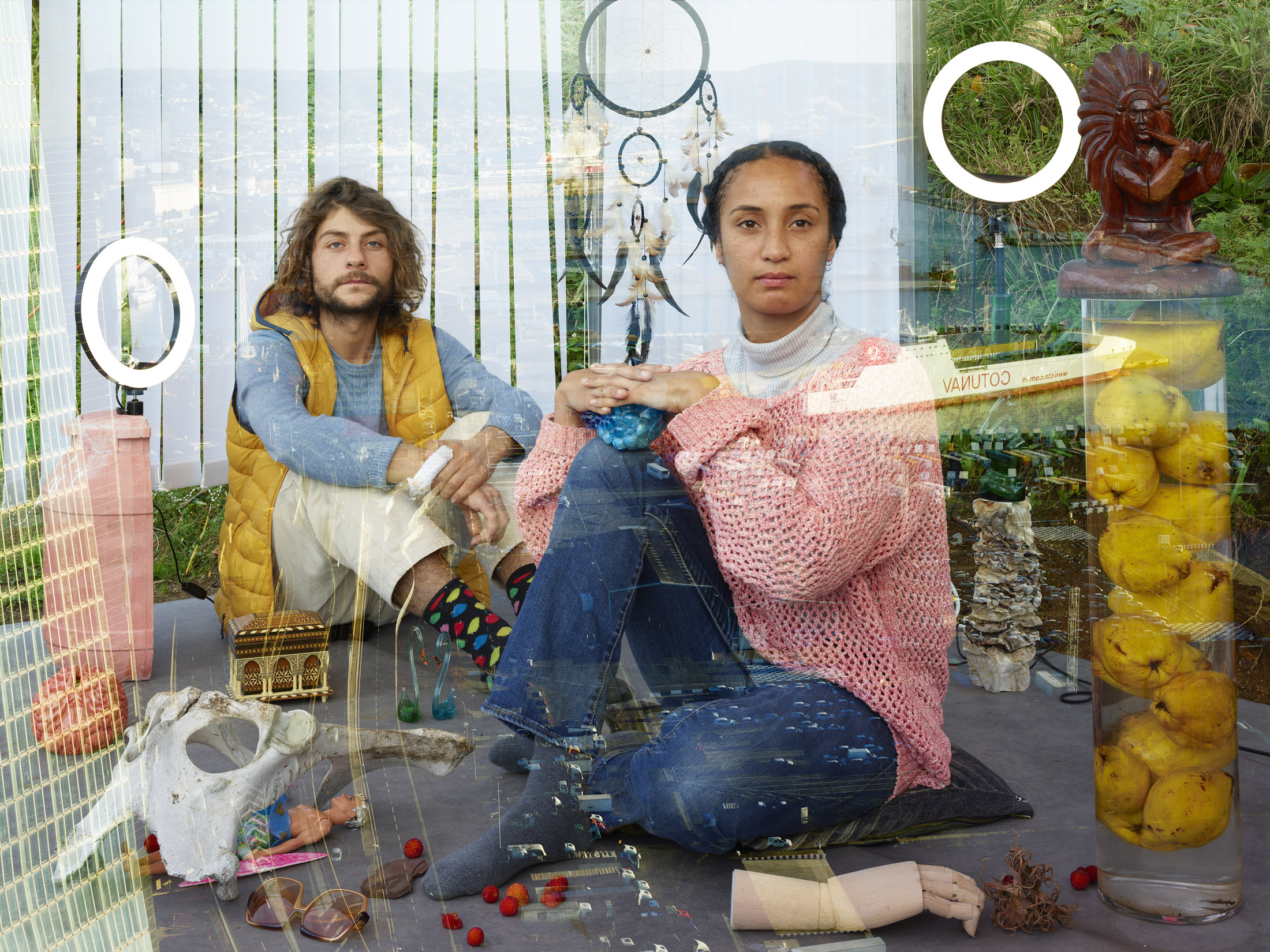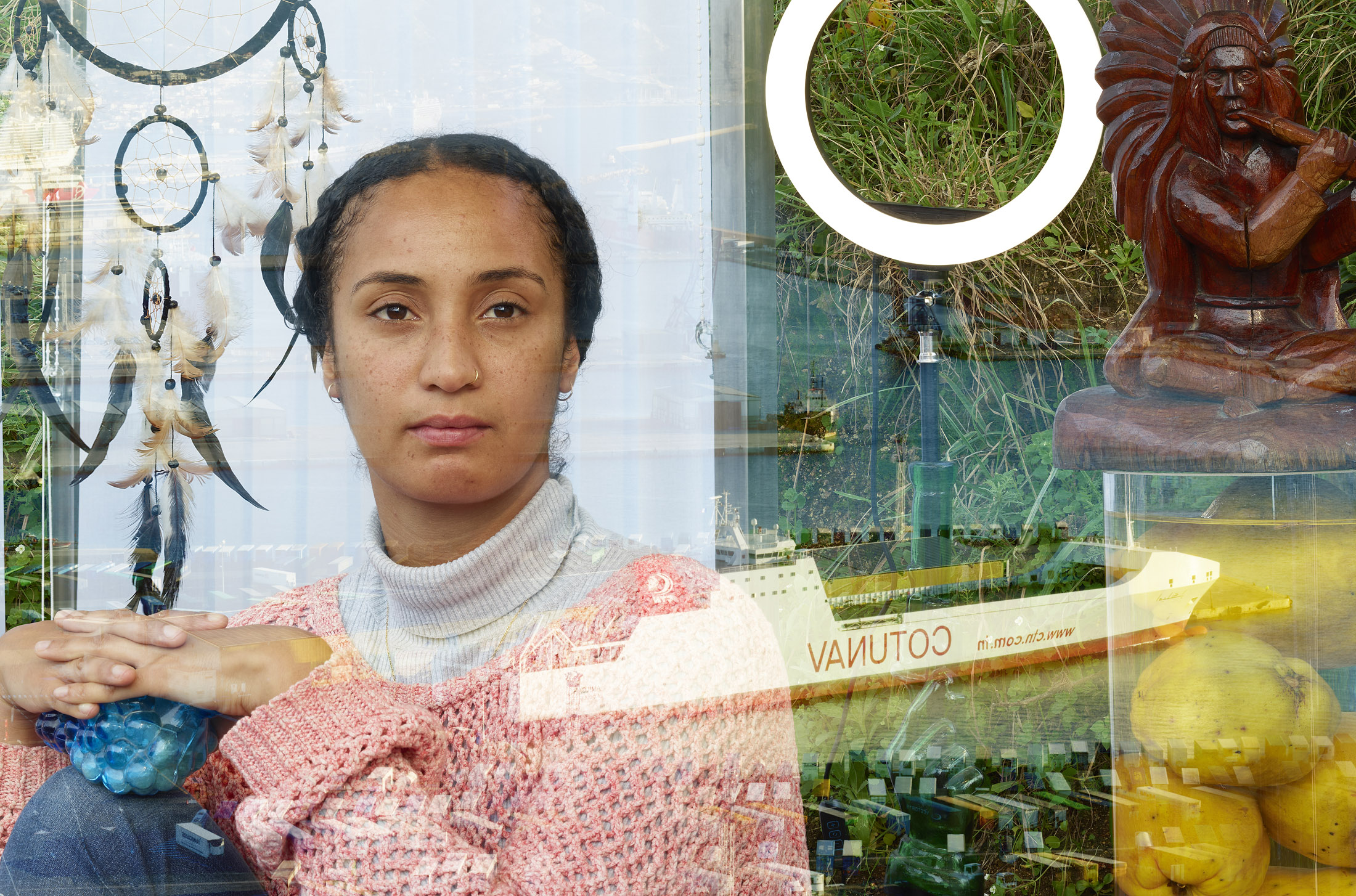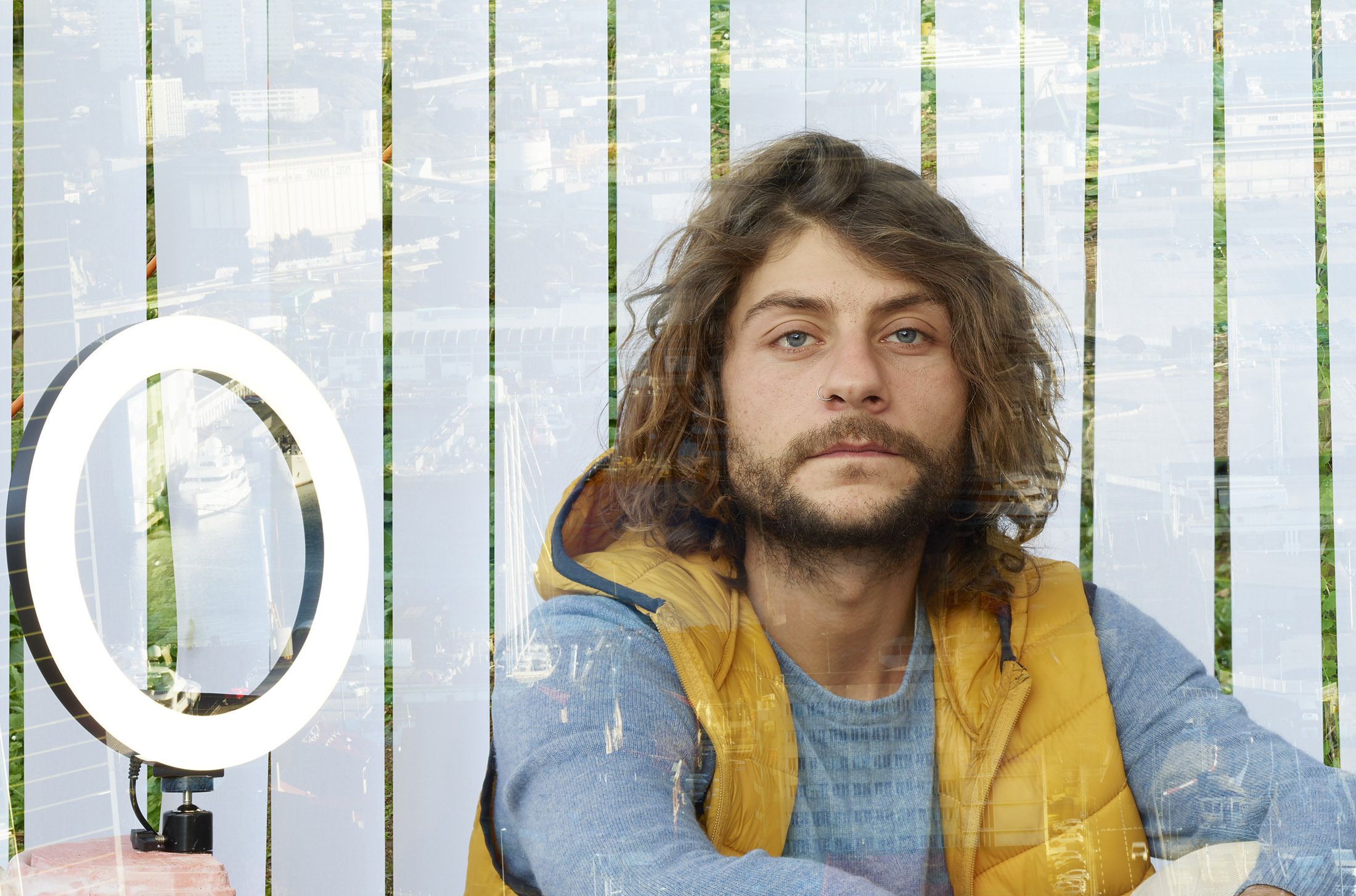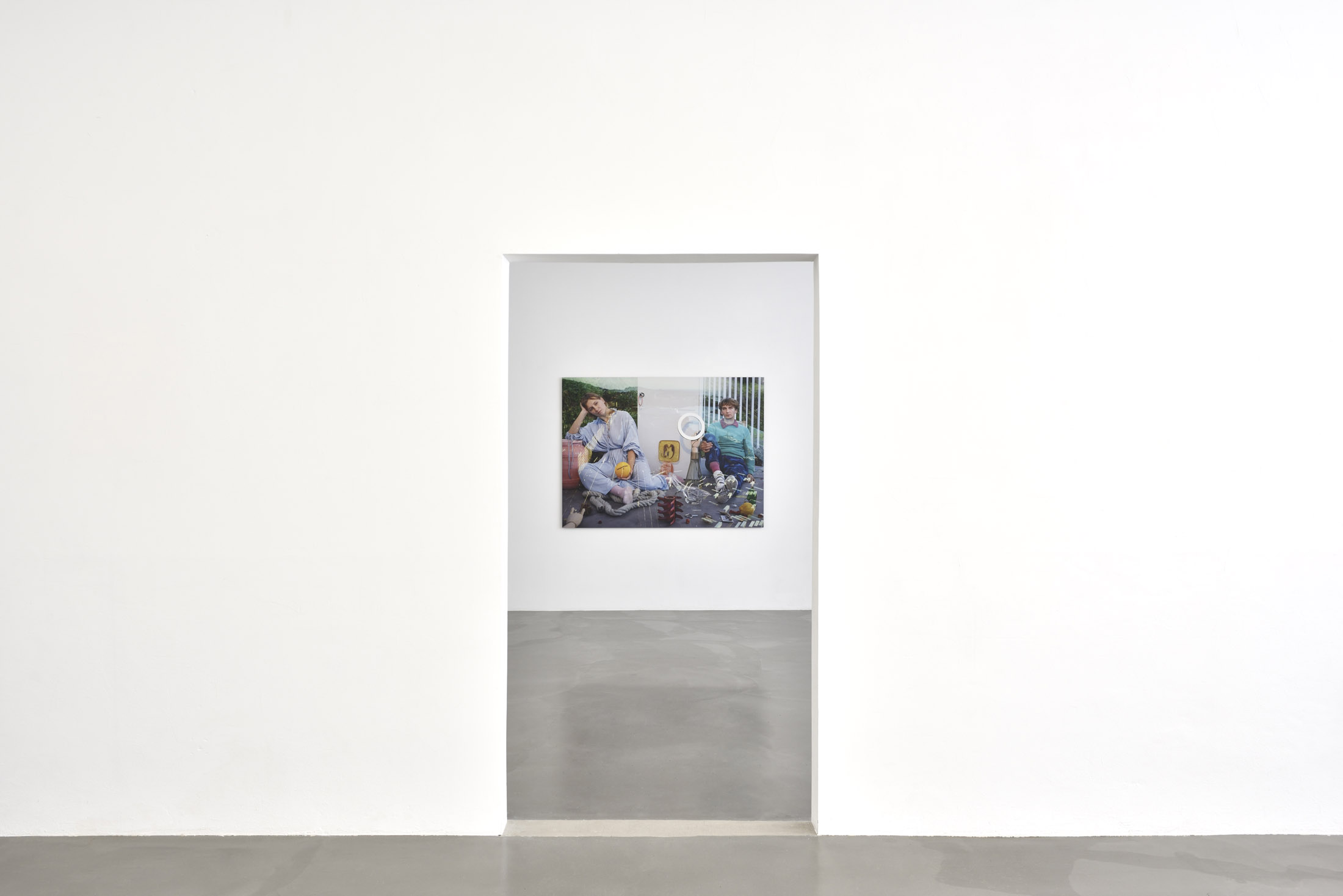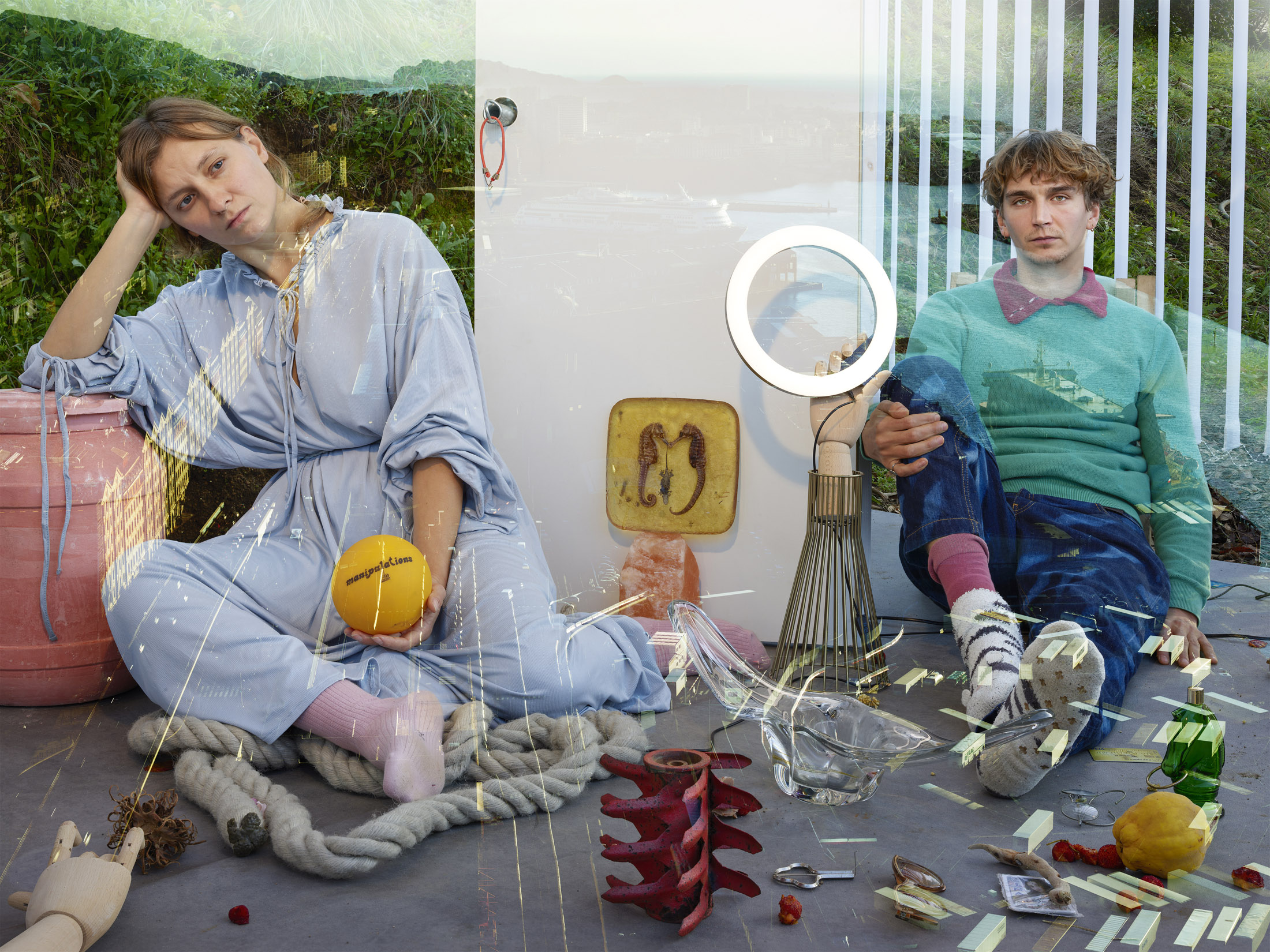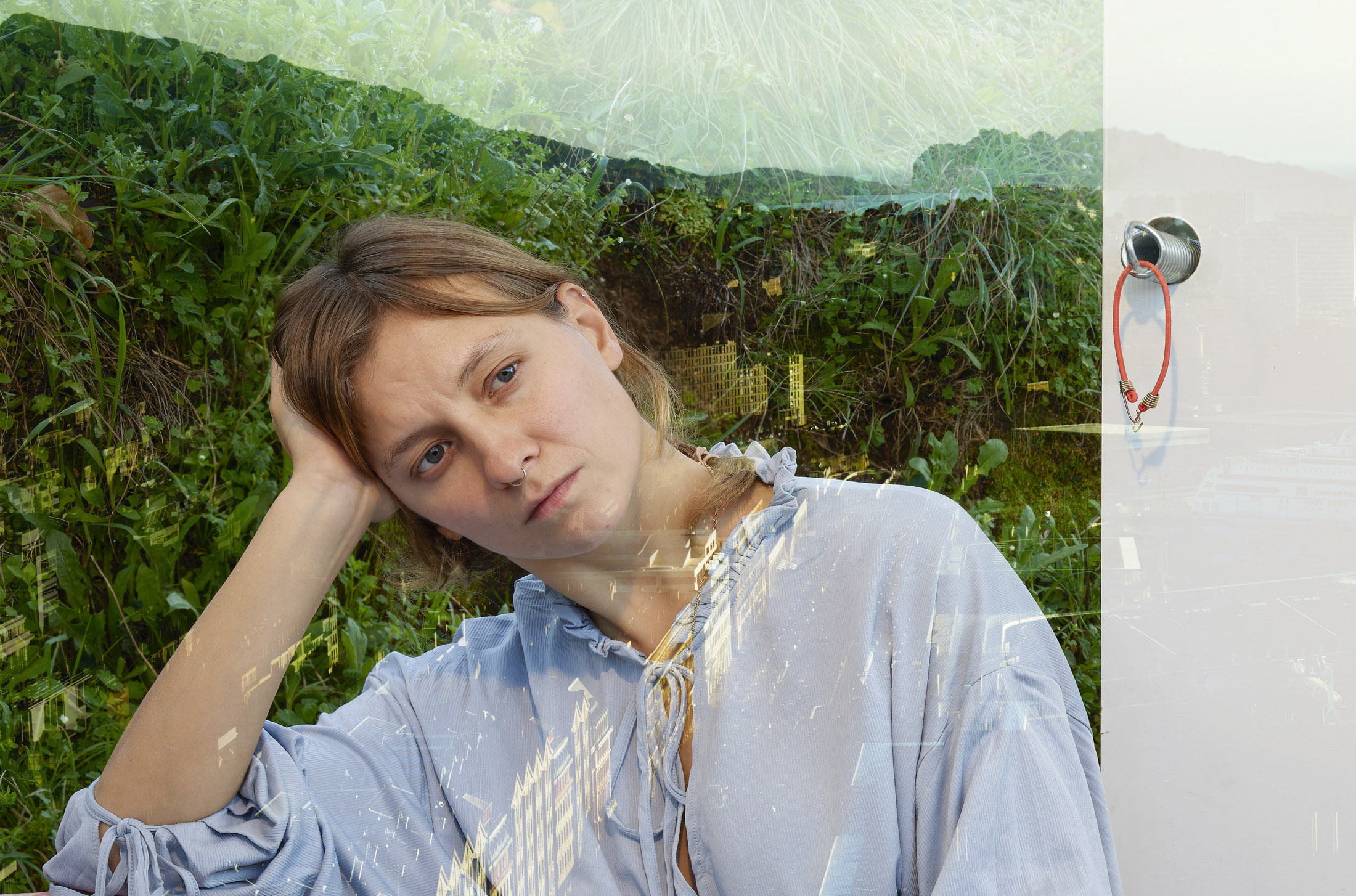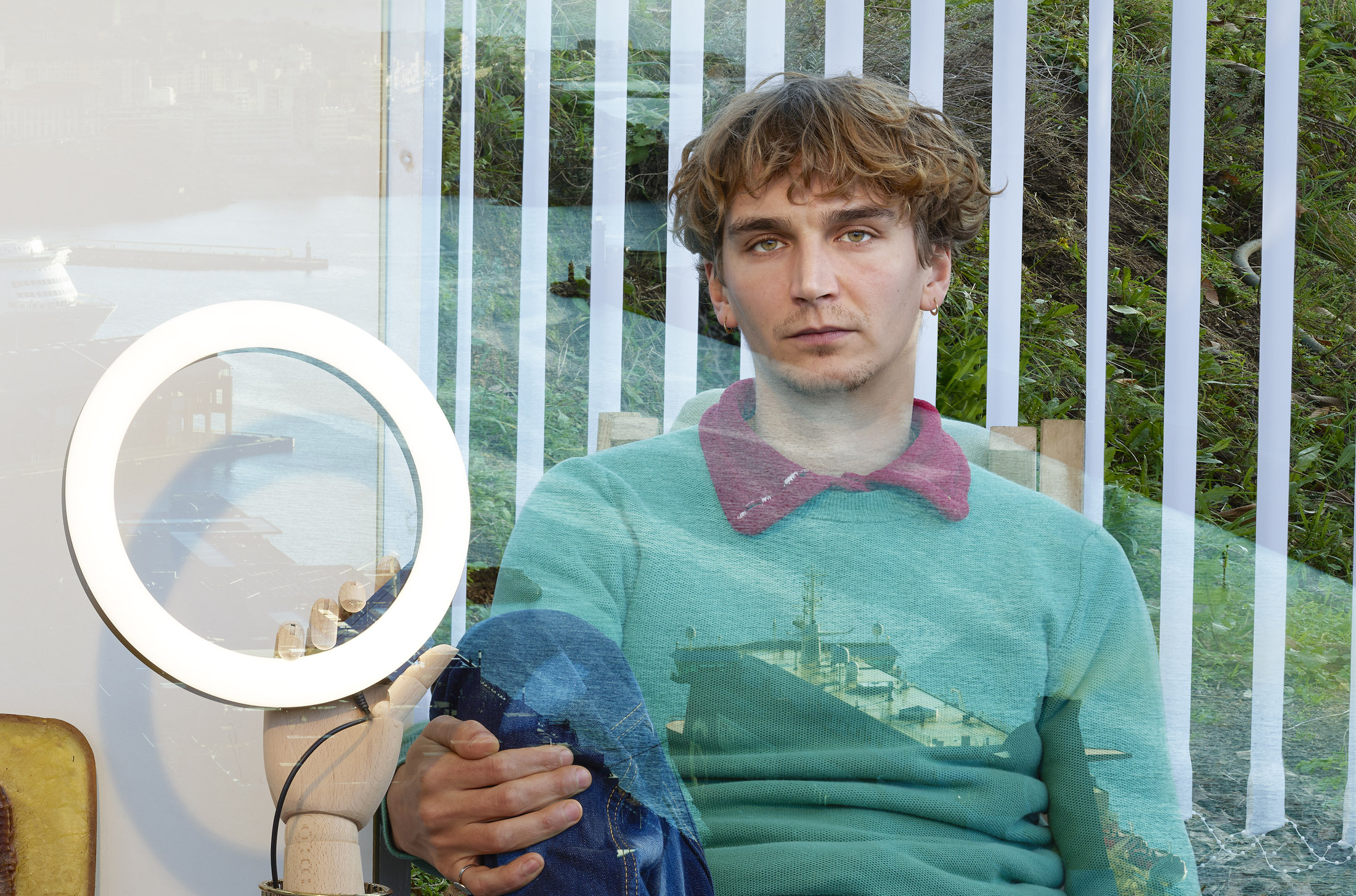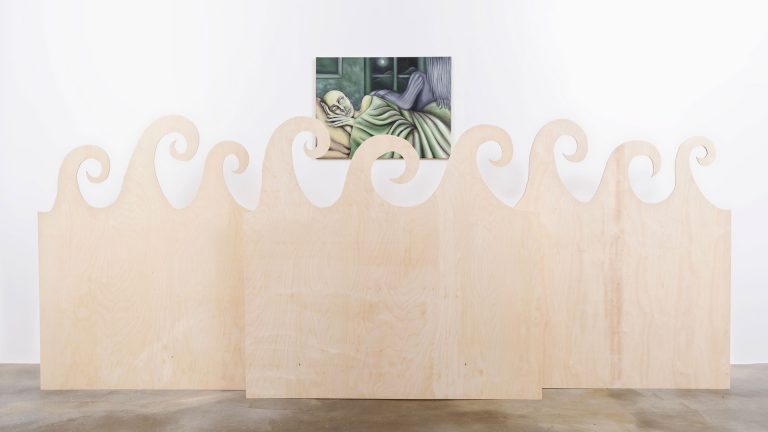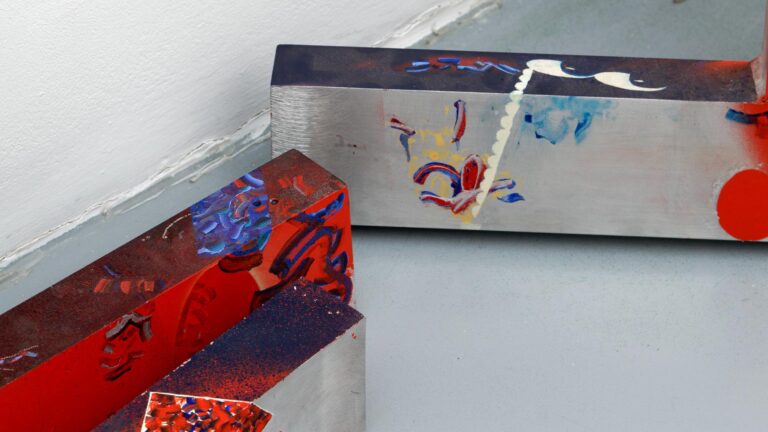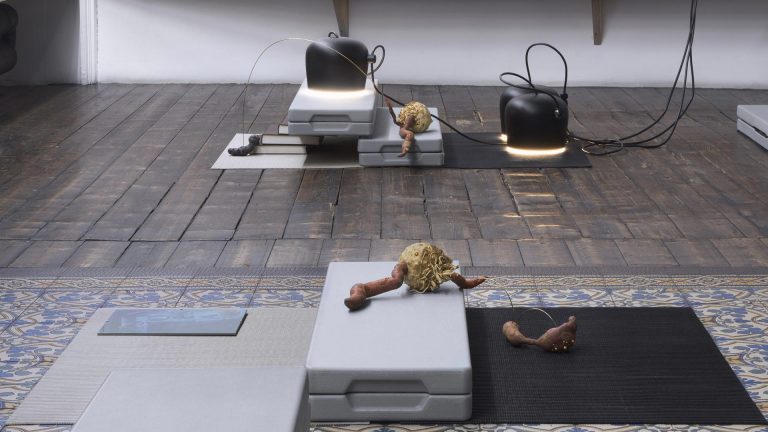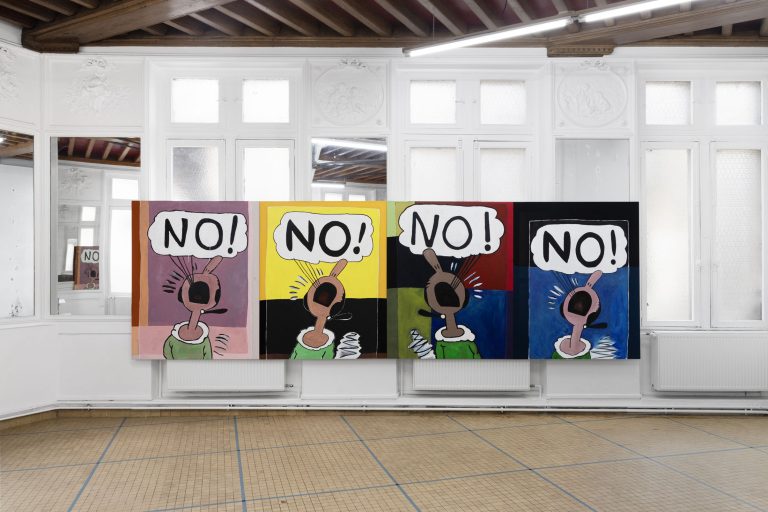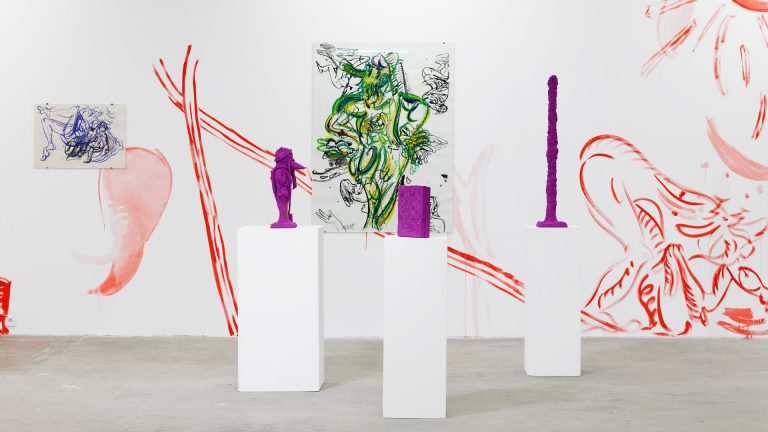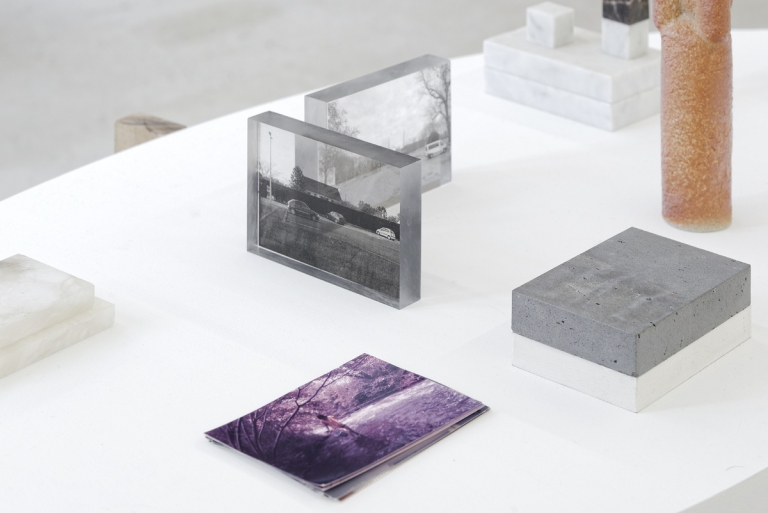Artist: Emmanuelle Lainé
Exhibition title: Who decides who decides?
Venue: Le Portique centre régional d’art contemporain du Havre, Le Havre, France
Date: February 11 – April 16, 2023
Photography: ©Rebecca Fanuele/ all images copyright and courtesy of the artist and Le Portique centre régional d’art contemporain du Havre
If the work of Emmanuelle Lainé carries a critical and political glance on the mutation of the contemporary world, the artist, far from producing a dogmatic discourse, starts from her personal experience, from her observations to elaborate her artistic proposals. Relying on her singular history, on her journey to tell a world, the world, ours… such is the method followed by Emmanuelle Lainé to build her narrative material.
The exhibition Who decides who decides? questions the world of work, the place of bodies and thought in constrained and minimalist spaces, modeled by a dominant capitalist ideology. What place for the human in a world of algorithms managed by digital companies?
Vocabulary of the service industry
If the artist does not adopt any dogmatic posture, it is to her models that she asks to take postures in her photographs, a sort of inventory à la Prévert of all the consumer objects, which, today, dictate our behaviors. More than models, the human figures fulfill a function: they materialize the constricted, suffocated body of our societies constrained and dominated by the hybris of the capitalist system, which leads to the domination of a mass by a few.
What does the mutation of the modes of consumption, of the working conditions tell us? What do the new architectures say about our ways of inhabiting spaces and the world? The exhibition calls upon the world of work. Through the use of materials and elements borrowed from the aesthetic vocabulary of the service industry (aluminum plates, blinds with slats, raw materials such as steel and stainless steel), the corporate spirit (as well as industrial know-how and techniques, which are always in constant evolution) intrudes and imposes itself on the exhibition space.
A precarious world of work
Because as an artist, Emmanuelle Lainé has always been confronted with the necessary adaptation of her activity to a space not designed for her practices, she continues, in her work, her reflections on the mutation of the corporate world. Since the health crisis, workers, sometimes nomads, sometimes SBF “without a fixed office”, are forced to reinvent a mental and physical space. Teleworking has shaken up the relationship to the world of work and its place of exercise. This use transforms the status of the employee, joining the artists in this precariousness linked to a fluctuating occupation of spaces left vacant. Without ceasing, each one tries to adapt to spaces which were not thought for the human, making uncomfortable the world which we live. Reinvesting the ruins left by societies that, following the Covid, had to fade away, this is the new challenge of everyone to revive architectures, which have lost their functionality. Everyone wanders through depopulated buildings, looking for a new meaning.
Resignation or resistance?
In her photographs, the result of a precise work combining old techniques (shooting via a camera) and digital processes, Emmanuelle Lainé stages bodies subjected to a teeming environment, made up of trinkets, domestic and manufactured objects. Allegory of globalization, these goods reflect the abundance and superfluity that characterize our consumerist society. His models, four young artists from Marseille (Samantha Steele, Anna Litomina, Cyprien Schaffner and Valentin Pasquotti Pirollo), look at the lens. Neither smiling nor overwhelmed, they display a certain neutrality, adopting a posture of resistance and awareness, which makes a possible future emerge, carried by this youth subjected to the movements of the world. Each body represents this contemporary society, oscillating between progress and regression. Each body bends, unfolds… extension of the domain of the struggle.
Welcome to the “world company”!
To realize these photographs, Emmanuelle Lainé reconstituted a cell, a work space, inspired by Buropolis, an office building from the 80’s disused and destined to be demolished. Located in Marseille, this building was rented, as is, to a community of artists (including Emmanuelle Lainé), designers and filmmakers and a nursing school, for a precarious lease (18 months). A temporary occupation of the premises promoted by the association YES WE CAMP. With precision and in an almost clinical manner, topoi (recurring motifs) were identified which, by assembling elements, constitute an imagery specific to the world of work: standardized doors, metal structures or rails for plasterboard and blinds, sometimes obscuring, sometimes revealing the outside world. The stage is set: welcome to the “world company”! The structure has been installed in the middle of nature, provoking an obvious break between the standardized world of work and the soft and enveloping paradise of the flora. Behind the glass windows, bodies contained in a stainless metal envelope. On these panes, an off-field that evokes the Mediterranean Tower, located in the booming district of the autonomous port of the Phocaean city. This tower symbolizes the circulation of materials and data*, which contribute to reconfigure the port activity of Marseille and to draw a new geography of flows. What about this data that circulates? Now owned by private companies to the detriment of governments, this knowledge is becoming a tool for control and surveillance.
Reclaiming space
Who gave power to these decision-makers? Who decides who decides?” asks Emmanuelle Lainé, as the title of the exhibition, borrowed from sociologist Shoshana Zuboff’s essay, The Age of Surveillance Capitalism, hammers home. Two questions in mirror, two repetitions: an almost tautological redundancy to say the vertigo of a world which, in favour of a wild capitalism, has abandoned politics, putting democracy in danger. What about the power of a citizen transformed into a consumer? The man, rather than undergoing the constraint of spaces, should think of remodeling them, thus gaining autonomy and freedom. Prerequisites to any reconquest of politics and knowledge!
*The port of Marseille is the digital gateway linking Europe to the rest of the world. It is the home of several undersea cables that enable data distribution and interconnectivity. This makes Marseille the 7th largest Internet hub in the world. This data is stored, processed and exchanged thanks to the data centers built in recent years in the port of Marseille. Source : RFI.

